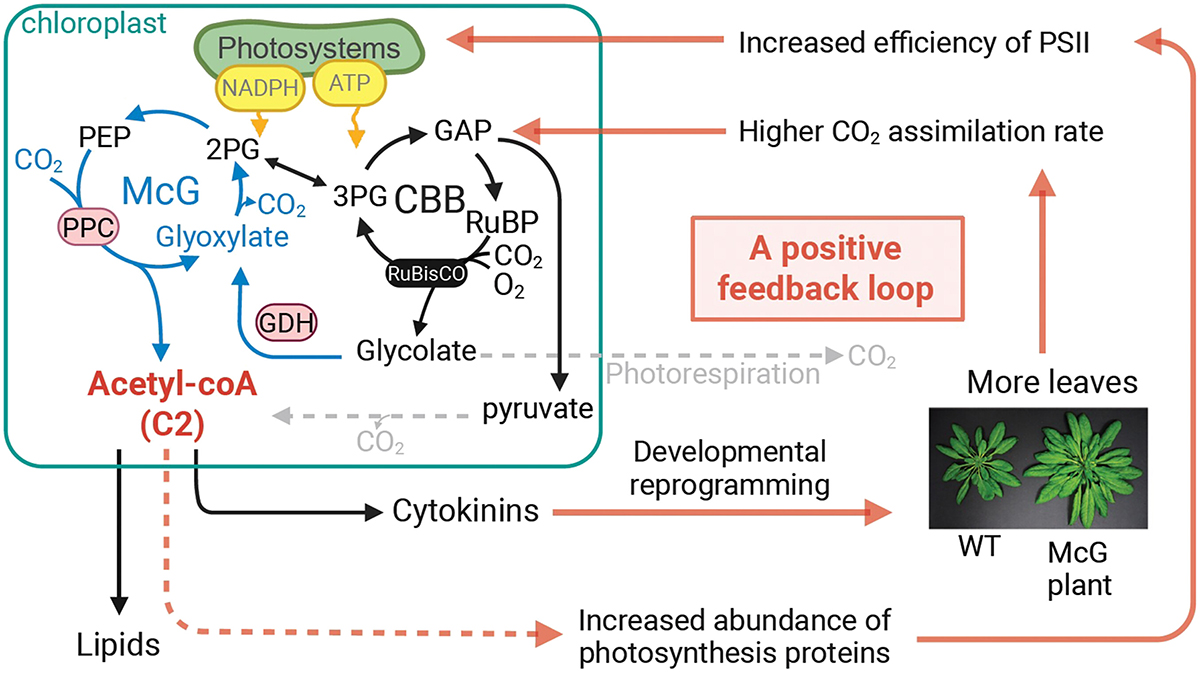
 中央研究院 生物化學研究所
中央研究院 生物化學研究所
Carbon fixation through the Calvin-Benson-Bassham (CBB) cycle accounts for the majority of carbon dioxide (CO2) uptake from the atmosphere. The CBB cycle generates C3 carbohydrates but is inefficient at producing acetyl-coenzyme A (CoA) (C2), which is the universal precursor for synthesizing lipids. In this work, we introduced in Arabidopsis thaliana a new-to-nature CO2 fixing cycle, malyl-CoA-glycerate (McG) cycle, which together with the CBB cycle forms a dual-cycle CO2 fixation system. This cycle can fix one additional carbon by phosphoenolpyruvate carboxylase and convert the photorespiration product, glycolate, to acetyl-CoA. Plants with the McG cycle show enhanced protein abundance in their photosystems and enhanced photosystem II efficiency. McG plants had doubled CO2 fixation rates under atmospheric CO2, increased lipid production, pronounced growth enhancement, and tripled the seed yield.
